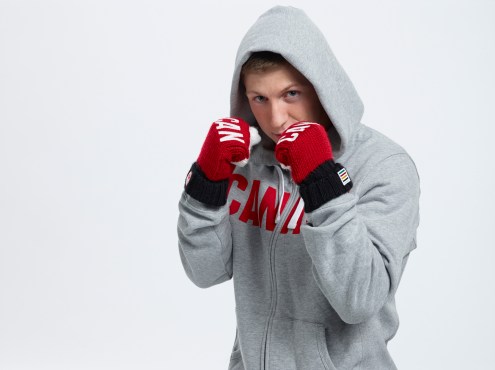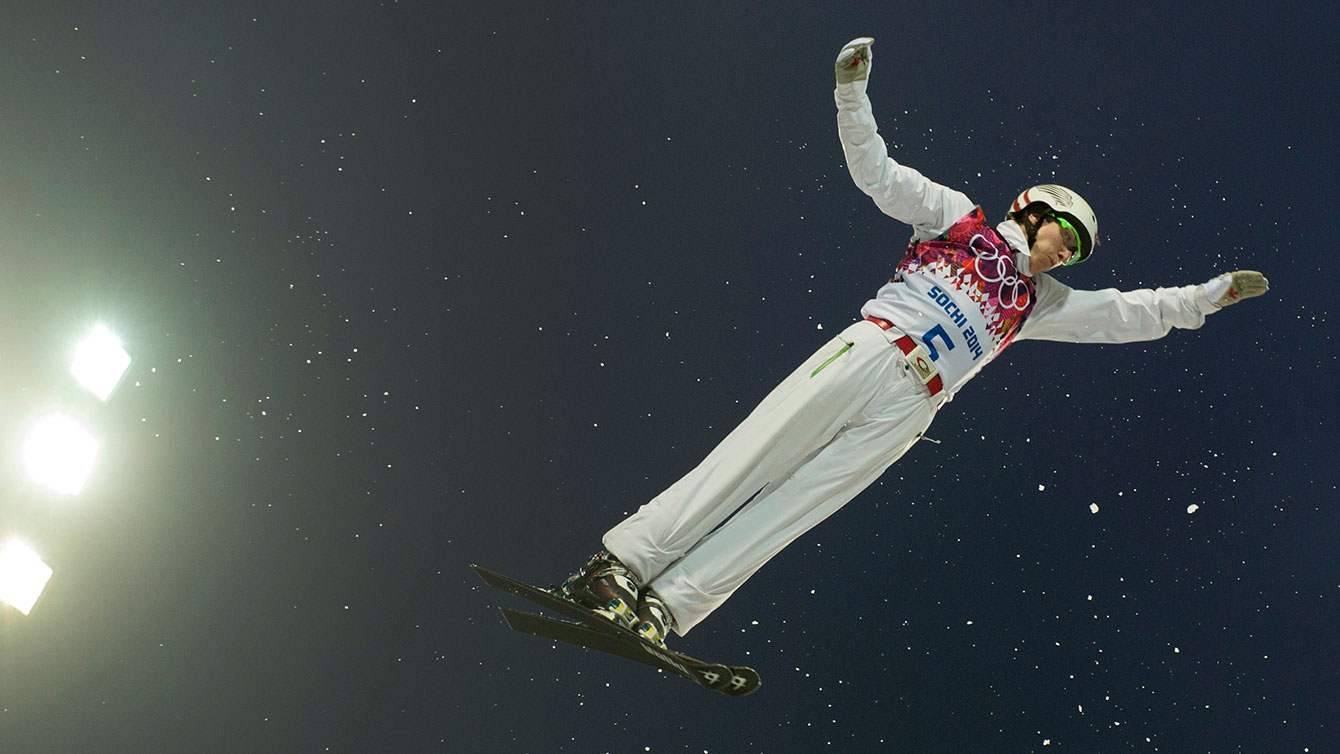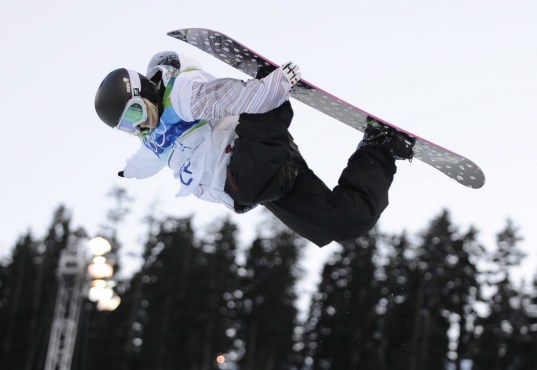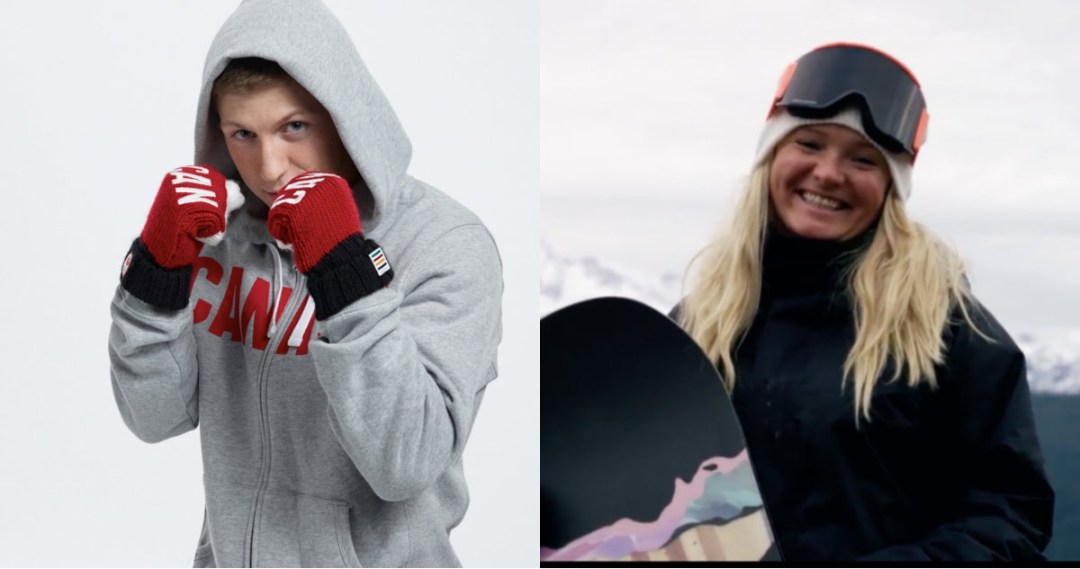Bell Mental Health Series – Travis Gerrits and Mercedes Nicoll
This article is brought to you by the Canadian Olympic Foundation for the March 2018 edition of STRIVE.
Canadian freestyle skier Travis Gerrits understands the stigma behind mental health. After competing in the Olympic Winter Games 2014, Travis was diagnosed with Type 1 Bipolar Disorder, but he wasn’t going to let that define him.

Travis Gerrits
It was difficult to come to terms with having a label, but he was determined to see past it and not let it take over his life.
Travis fell in love with aerials at a very young age, and the passion and exhilaration of the sport has only become stronger over the years. The feeling of flying through the air gives him a sense that he can overcome whatever is holding him back, physically, emotionally and mentally. It allows him to focus on what’s happening in the moment and that’s what he truly lives for.
Travis realized something was different when he was trying to get back into training after Sochi 2014. He was falling into a depressive state and it wasn’t the first time he had experienced something like this. It was something he had felt for many years, off and on.
RELATED: 2017-18 Team Canada Winter Preview: Freestyle Skiing
Type 1 Bipolar Disorder isn’t something that happens on a day to day basis. For Travis, it often comes in 3-week periods with severe highs and lows, from manic episode to depressive episode. This makes training and competing just that much more difficult for him.

Travis Gerrits – Sochi 2014
With the help of specialized sports psychologists, medication and therapy, Travis has continued on in his success. Sharing his story has given him the chance to inspire others to seek help and get the treatment they need. Thanks to the funding through the Canadian Olympic Foundation from Bell, Travis and many other Canadian athletes can afford access to the tailored mental health services they may need.
You can view Travis’ full length video here. Join the conversation #BellLetsTalk
Very few things scare snowboarder Mercedes Nicoll, and depression is definitely not one of them.

Mercedes Nicoll
Every time she gets up on top of the halfpipe she gets excited. A heartwarming feeling takes over and it’s one of the best feelings you could ever experience. She feels like she’s on top of the world. Then, her whole world came crashing down.
After a devastating crash during practice runs in Sochi 2014, Mercedes knew something was different. Her personality was wiped, her sparkle was lost.
RELATED : In her own words: Mercedes Nicoll’s fight against depression
She fell more than 2 storeys, backwards into the half pipe, crushing both her hip and the side of her face. She worked so hard to get to Sochi, and now all of it was coming crumbling down. She knew she was concussed, she had no idea depression was about to sink in.

Mercedes Nicoll of Canada compete during semifinals in the women’s snowboard halfpipe at the Vancouver 2010 Olympics in Vancouver, British Columbia, Thursday, Feb. 18, 2010. (AP Photo/Mark J. Terrill)
Depression is something that just takes over. You can look fine on the outside, but inside you’re falling apart. Mercedes is not afraid to live with depression. It’s a part of who she is, and she hopes to inspire others to share what they have gone through because once you share it, everyone can heal together.
While going through recovery for her injuries she took up art therapy. Painting and putting all of her emotions out there, for everyone to see. Expressing all of her feelings on canvas was her outlet that helped her through the darkest of times.
Mercedes was also very fortunate to have access to several sports psychologists who helped her through her journey. Now, on the path to PyeongChang, she’s got her sparkle back. Thanks to funding through the Canadian Olympic Foundation and Bell, high performance athletes like Mercedes can get access to the mental health services they need.
You can view Mercedes’ full length video here. Join the conversation #BellLetsTalk

 Canadian Olympic Foundation
Canadian Olympic Foundation









